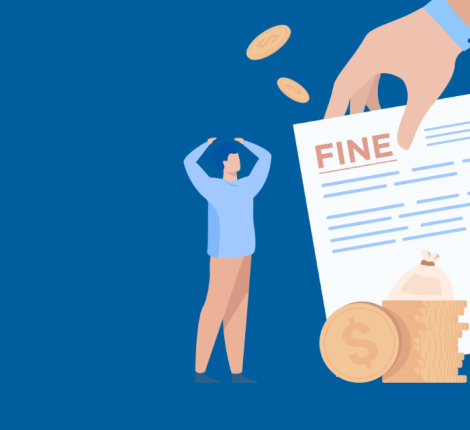IPR Newsletter – Metaverse Mastery: Impact of IP Laws on Indian Business Landscapes : May 2024
Abstract
The emergence of the Metaverse marks a pivotal moment in human history, where the digital and physical worlds converge to redefine the boundaries of creativity and commerce. This article explores the complex legal environment of the Metaverse, concentrating on the dynamics of intellectual property (IP), notably in relation to India. This investigation seeks to identify the particular legal issues brought about by the growth of the Metaverse, ranging from the changing boundaries of copyright and trademark law to the cutting-edge difficulties of virtual property rights. Furthermore, we examine its profound impact across a spectrum of industries, ranging from real estate to gaming, from fashion to gastronomy, each sector grapples with the transformative power of the Metaverse and the need for tailored legal frameworks to navigate its uncharted terrain.
Introduction
The Metaverse, a sprawling digital expanse teeming with infinite possibilities, has transcended the realms of science fiction to become a tangible reality. The Metaverse offers an abundance of opportunities for invention and discovery in India, a country widely recognised for its technological capabilities and cultural diversity. But as society makes its way through this uncharted area, legal structures will need to change to meet the many complexities of virtual worlds, with an emphasis on preserving intellectual property rights while encouraging innovation and creativity.
Evolving Legal Landscape
In India’s legal sphere, the development of the Metaverse sparks an important shift in how IP laws are interpreted and applied. The volatile nature of virtual creations challenges copyright laws, which were created for a tangible world, and forces a revaluation of ideas like fixation and originality. In the meantime, trademark laws expand their jurisdiction to include online brand identities, posing issues with uniqueness and consumer confusion in an online marketplace.
Furthermore, the Metaverse challenges conventional ideas of ownership and possession by giving rise to new legal concepts like virtual property rights and non-fungible tokens (NFTs). In this situation, attorneys have to make up new paths while striking a balance between the demands of innovation, legal certainty, and consumer protection.
Impact Across Industries
The Metaverse’s influence transcends sectoral boundaries, permeating industries as diverse as real estate, gastronomy, fashion, gaming, and travel. In real estate, virtual property transactions disrupt traditional models of ownership and valuation, necessitating legislative measures to regulate virtual land rights and mitigate the risks of fraud and exploitation.
Similarly, the culinary landscape undergoes a digital renaissance, with virtual dining experiences redefining the parameters of gastronomic exploration. Here, food safety standards and liability frameworks must adapt to accommodate the unique challenges of virtual consumption and distribution.
In the realm of fashion, virtual fashion shows and digital couture redefine the contours of creativity and commerce, prompting legal scholars to grapple with questions of authenticity and authorship in a digitized fashion ecosystem. Concurrently, the gaming industry experiences a radical transformation as virtual worlds evolve into thriving economies, governed by complex webs of contractual obligations and licensing agreements.
Finally, a new industry called virtual tourism appears, providing immersive travel experiences that go beyond geographical limitations. However, consumer protection issues and jurisdictional complexities are major issues that highlight the necessity of strong legal frameworks to protect the rights and interests of all parties involved in the virtual travel industry.
How IP can be protected in Metaverse
Navigating the application of real-world IP law within the metaverse remains a nebulous terrain. Nevertheless, leveraging existing legal frameworks can offer a foundational approach to addressing IP infringement in this expanding virtual realm. Entities seeking to safeguard their intellectual property (IP) might consider the following strategies
Early IP Registration
Encompassing trademarks, copyrights, and patents—stands as a pivotal step. Even as the metaverse IP protection landscape continues to take shape, initiating a robust registration process is instrumental in solidifying ownership rights. Notably, brands are swiftly immersing themselves in the metaverse, strategically filing trademarks to safeguard their virtual offerings and experiences. This proactive approach is exemplified by the US Patent and Trademark Office’s (USPTO) approval of trademarks for virtual retail services, with notable examples including “Starton” and “Burlap Buffalo”. Further illustrating this trend, household names such as Panera Bread have ventured into the metaverse, evident in their filing for “PANERAVERSE” to protect their virtual food and restaurant ventures. The courts have recognised such protection in various cases. For instance, In the case of Exphar SA v. Eupharma Laboratories Ltd. (2004) 3 SCC 688, The Delhi High Court ruled that utilizing a trademark resembling the plaintiff’s in a virtual environment amounted to trademark infringement. It emphasized that the defendant’s adoption of a similar trademark was apt to create confusion among consumers.
Implementing preventive measures
Maintaining proactive vigilance is paramount. Achieving this entails harnessing a combination of automated infringement detection tools and manual oversight to swiftly pinpoint any potential misuse of intellectual property (IP) within the metaverse. Furthermore, safeguarding IP from theft and unauthorized access necessitates the implementation of robust security measures, including the utilization of strong passwords and additional security protocols.
Licensing in the Metaverse
Exploring opportunities to license your intellectual property (IP) within the metaverse can open up innovative revenue streams. Such agreements facilitate regulated utilization of your IP, thereby extending brand presence and generating royalties upon its usage. Licensing arrangements also nurture collaborative ventures, exemplified by fashion brands collaborating with avatar stores or game developers engaging in character co-creation endeavors. It’s imperative that IP licenses are carefully crafted or updated to account for the unique considerations of the metaverse. For instance, copyright licenses permitting reproduction and distribution of works must expressly delineate whether they pertain exclusively to real-world applications or encompass virtual representations within the metaverse.
Be securely informed
The rapid evolution of the metaverse presents a host of challenges in the application of existing intellectual property (IP) law. Courts will inevitably confront the task of applying traditional legal doctrines to entirely novel scenarios. Moreover, governments will be compelled to revise their IP registration procedures to accommodate the unique dynamics of the metaverse. It’s incumbent upon legal practitioners and stakeholders to remain abreast of these unfolding developments and potential intersections between IP law and adjacent realms such as false advertising. Consequently, the swift expansion of the metaverse engenders considerable uncertainty for IP law, necessitating continual legal adaptations and vigilant oversight by legal experts.
Conclusion
A new age of opportunity and danger, where the lines between reality and innovation are blurring, has been declared by the Metaverse. The transition to this digital world necessitates a harmonious synthesis of legal prudence and technological advancement, both in India and abroad. As policymakers, legal practitioners, and industry stakeholders converge to chart the course ahead, they must navigate the shade of IP law with foresight and adaptability, ensuring that the Metaverse remains a bowl of creativity, connectivity, and inclusivity for generations to come.





